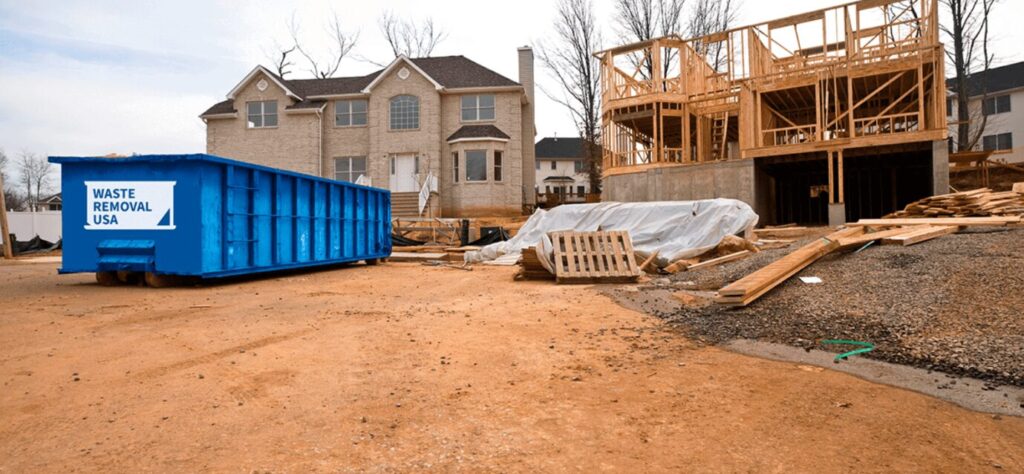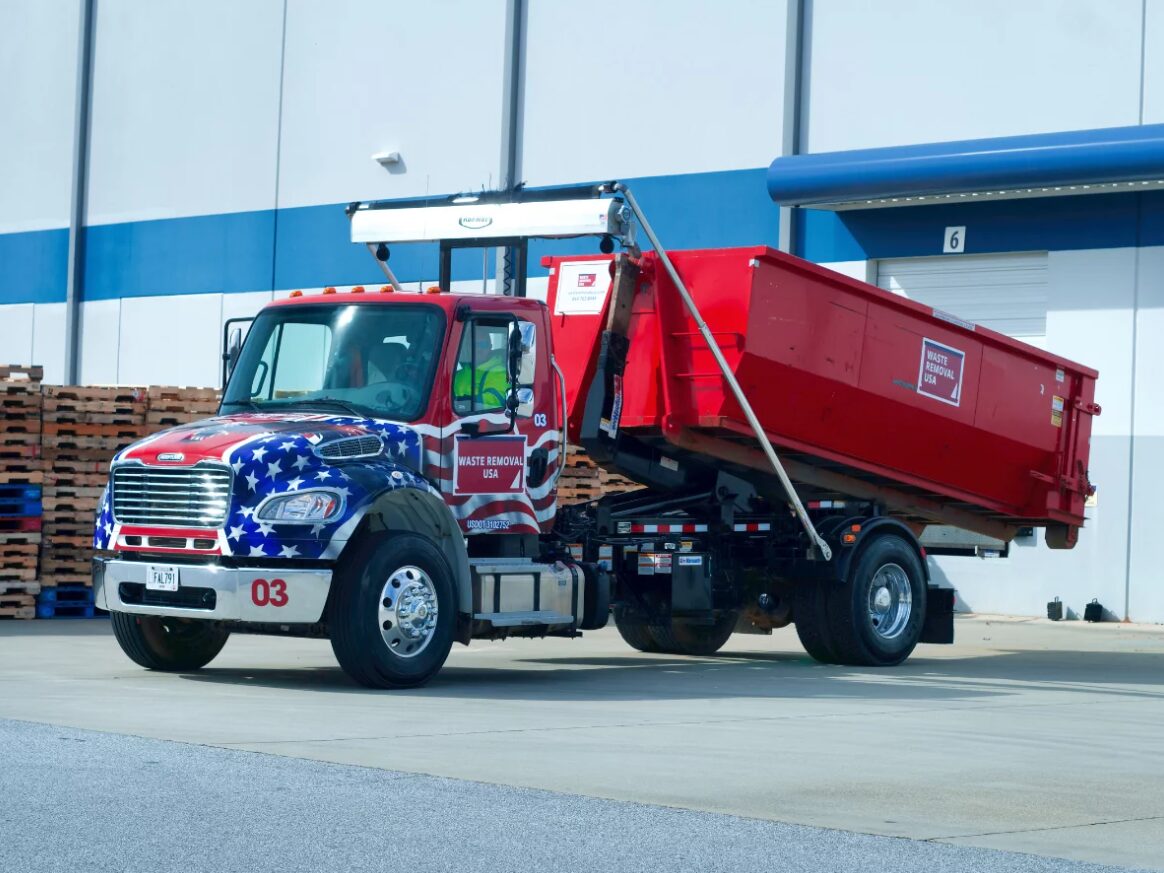When it comes to managing waste on a construction site, a construction dumpster rental can be an invaluable resource. Not only does it streamline the process of waste removal, but it also helps keep the site organized, safe, and compliant with regulations.
Whether you’re a contractor working on a large-scale project or a homeowner handling a remodel, understanding the ins and outs of construction dumpster rentals is essential. In this guide, we’ll break down everything you need to know.
Table of Contents
What is a Construction Dumpster?
A construction dumpster is a large container designed specifically to hold waste generated during construction, renovation, or demolition projects. These dumpsters are available in various sizes and are typically delivered to the job site by a waste removal service. Once the dumpster is filled, the company will come to pick it up and dispose of the waste in accordance with local laws and regulations.
Why Rent a Construction Dumpster?
There are several reasons why construction dumpster rentals are beneficial for your project:
- Convenience: A rental company drops off and picks up the dumpster, making the waste removal process seamless.
- Cost-Efficiency: Rather than paying for multiple trips to a landfill, renting a dumpster allows for a single, bulk waste removal service.
- Regulatory Compliance: Many municipalities have strict guidelines on construction waste disposal. A professional dumpster rental company ensures that your waste is disposed of in compliance with these rules.
- Safety: An organized construction site is a safe site. By having a designated place for waste, you reduce the risks of accidents caused by scattered debris.
Types of Waste Suitable for Construction Dumpsters

Not all materials can be thrown into a construction dumpster. However, most will accommodate:
- General Construction Debris: This includes materials such as drywall, wood, tiles, and windows.
- Demolition Debris: Broken concrete, bricks, and other demolition materials are also accepted.
- Roofing Materials: Old shingles, underlayment, and other roofing waste can go in the dumpster.
- Landscaping Debris: Trees, bushes, and other organic waste from landscaping work are usually allowed.
Items that are typically not allowed include hazardous materials like asbestos, chemicals, batteries, and paint. Always check with your rental company to confirm what is and isn’t allowed to avoid penalties.
How to Choose the Right Dumpster Size
One of the most important factors to consider when renting a dumpster is choosing the right size. Dumpsters typically come in a variety of sizes, measured in cubic yards, such as:
- 10-yard dumpster: Ideal for small home renovations or landscaping jobs.
- 20-yard dumpster: Suitable for medium-sized projects like basement cleanouts or kitchen remodels.
- 30-yard dumpster: Best for large home additions, multi-room remodels, or new construction.
- 40-yard dumpster: Typically used for major construction jobs or large commercial projects.
It’s essential to estimate the volume of waste your project will generate. Renting a dumpster that’s too small can lead to overage fees while renting one that’s too large means paying for unused space.
How Long Can You Keep a Construction Dumpster?
Most dumpster rental companies offer flexible rental periods, typically ranging from one week to a month. Depending on your project’s timeline, you can extend or shorten the rental period. Be sure to ask your service provider about any additional fees for extending the rental period beyond the initial agreement.
The Costs Involved in Dumpster Rentals
The cost of a construction dumpster rental varies based on several factors, including:
- Size of the Dumpster: Larger dumpsters are more expensive.
- Rental Period: The longer you keep the dumpster, the more it will cost.
- Location: Dumpster rental costs can fluctuate depending on your geographic location and proximity to landfills.
- Weight Limits: Most rentals come with weight limits. If you exceed the limit, you may be charged extra.
On average, you can expect to pay anywhere from $300 to $800 for a dumpster rental. For a more accurate quote, you can consult a trusted service like Waste Removal USA, which offers clear pricing and flexible rental terms.
Steps to Renting a Construction Dumpster
Renting a construction dumpster is a straightforward process if you follow these steps:
- Assess Your Needs: Determine the size of the dumpster and the type of waste you’ll be disposing of.
- Contact a Dumpster Rental Company: Contact a reputable provider, such as Waste Removal USA, for competitive rates and excellent service.
- Schedule Delivery: Once you’ve selected a company and dumpster size, schedule a delivery time that aligns with your project timeline.
- Fill the Dumpster: As your project progresses, fill the dumpster with approved waste. Be mindful of weight limits and prohibited items.
- Schedule Pickup: Once your project is complete, call the rental company to schedule a pickup. They will haul the dumpster away, and your waste will be disposed of responsibly.
Legal Considerations
Before renting a construction dumpster, it’s important to be aware of local regulations. In some areas, you may need a permit to have a dumpster placed on the street or in a public area. Failure to secure the proper permits can result in fines or the removal of the dumpster. Additionally, be sure to inquire about any zoning laws or community guidelines that could affect the placement of the dumpster.
Tips for Efficient Dumpster Use
To get the most out of your construction dumpster rental, follow these tips:
- Break Down Large Items: Breaking down large pieces of debris will help you maximize the dumpster’s capacity.
- Distribute Weight Evenly: Distributing weight evenly across the dumpster will prevent overloading one side, which can lead to tipping.
- Avoid Overfilling: Don’t fill the dumpster past the designated fill line. Overfilling can result in extra charges or the need for an additional pickup.
- Schedule Regular Check-Ins: If your project will take multiple weeks, regularly check the dumpster’s fill level to avoid last-minute surprises.
Conclusion
A construction dumpster rental is a cost-effective, convenient solution for managing waste on your construction site. By selecting the right size, following rental guidelines, and adhering to local regulations, you can ensure that your project runs smoothly from start to finish. With services like Waste Removal USA, you’ll be able to handle waste disposal efficiently, allowing you to focus on what matters most: completing your project.





